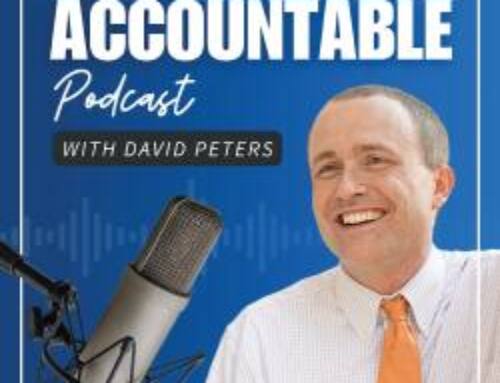SCACPA knows that many CPAs are analyzing the rules of the Treasury Department’s Paycheck Protection Program application. While there are many ways you can help your small business clients, let’s specifically talk about the implications of acting as loan agent.
The CARES Act, which Congress passed and was signed into law on Friday, March 27, 2020, states:
CARES Act: ‘‘(ii) FEE LIMITS. — An agent that assists an eligible recipient to prepare an application for a covered loan may not collect a fee in excess of the limits established by the Administrator.”
The program’s lender guide lists accountants as approved agents of loan applicants and that agents can be compensated. “Agent fees will be paid out of lender fees. The lender will pay the agent. Agents may not collect any fees from the applicant.”
The total amount that an agent may collect from the lender for assistance in preparing an application for a PPP loan (including referral to the lender) may not exceed:
- Loans $350,000 and under: 1.00%
- Loans greater than $350,000-$2 million: 0.50%
- Loans greater than $2 million: 0.25%
The Act authorizes the Administrator to establish limits on agent fees. The Administrator, in consultation with the Treasury Secretary, determined that the agent fee limits set forth above are reasonable based upon the application requirements and the fees that lenders receive for making PPP loans.
As we begin this discussion, let’s remember and understand: All aspects of this government stimulus is evolving at a rapid rate. Even if rules stay in place, guidance and best practices can be fluid. But the Treasury does urge those in need of funding to apply quickly, noting that the program has a cap and demand is likely to be overwhelmingly high.
Understanding What Can or Should CPAs Charge for Agent Services
Based on SCACPA’s reading of the current guidelines: It is permissible for a CPA to charge for collecting the documents and data required to complete the calculation and advise their clients. Such services are outside the scope of preparing the form.
If a CPA firm is charging fees for advising the small business in deciding which loan program and tax relief program is best for their business, we think it is reasonable that those fees would fall outside this provision of the CARES Act. Thus, a firm can perform services outside of loan preparation assistance, and those fees would be paid by the client. What a CPA charges for advisory services, outside of processing and preparing that application, is between you and the client.
Based on SCACPA’s reading of the bill, completing the form is not chargeable. CPAs should not be charging a client for the act of completing the form.
We have talked to CPAs who do not want to charge their clients for this service but they do want to collect agent fees as described above, where the intent is that the banking lender would pay for that.
It is also true that some CPA firms do not intend to charge their clients for the PPP application process for reasons including that the PPP asks for a self-certification from the business and not any type of certification from the CPA, as may be the case in other loan packages. CPAs should not be providing any certification, as it is not required according to the guidelines.
What Are My Responsibilities if I List Myself as an Agent?
The question of should a CPA attempt to be listed as the agent or bill the client directly is going to come down to how you measure acceptable risk.
SCACPA believes that the main thought for practicing CPAs is: “How do I keep my clients in business?” It is done by helping clients through the Paycheck Protection Program process.
Gather the data for your clients. Analyze what’s best for clients. Help them apply for the loan.
When it comes to the question of “Do I care if I’m listed as the loan agent?” It is of secondary concern. Of primary concern is helping clients apply for and receive these loans.
The client is the one who is certifying that the application information is true. The CPA is not making that certification, the CPA is helping the client go through the process.
It is in the CPA’s interest that clients weather this economic crisis. Helping clients get any assistance possible will strengthen long-term relationships with the client.
Helping the client survive is what’s going to be remembered.
More Resources
The Paycheck Protection Program is an innovative solution for unprecedented times. It serves the economy, the profession and individual CPA firms by helping clients stay in business. It will also help some CPA firms meet payroll obligations.
Thank you for all that you continue to do to help your clients as we identify the best ways to keep South Carolina individuals and businesses strong and prepared for our subsequent recovery.
For more information on the SCACPA Blog, you can read our post “Treasury Dept. ‘Paycheck Protection Program’: Help Your Small Business Clients, and You Can Act as Loan Agent.”
AICPA’s “SBA Paycheck Protection Program resources for CPAs”



